Overview
Through holistic education, training, and experiential learning, the Child & Family Justice Initiative aims to prepare UNM Law students to use transformative advocacy to pursue racial equity and well-being for children and families in New Mexico.
About the Child & Family Justice Scholarship
Since the fall semester of 2017, the UNM School of Law has selected a diverse cohort law students from each incoming class to be recipients of the Child & Family Justice Scholarship and be trained as outstanding social justice lawyers who commit to serving New Mexico’s at-risk children and families after graduation. These students are the Child & Family Justice Advocates.
The purpose of this selection process is to produce social justice lawyers who will provide holistic, preventative legal and policy advocacy on behalf of New Mexico’s most vulnerable children and families. They will address racial equity, health-harming legal needs, and other pressing issues that prevent children and their families from thriving (including poverty, immigration status, education, interpersonal violence, and much more). During their law school experience, the Advocates will be required to:
- participate in targeted group mentoring and networking opportunities;
- attend Social Justice Lunchboxes;
- spend at least one summer interning at a relevant non-profit organization or civil legal services provider;
- complete the Child and Family Justice Section of the Law Clinic; and
- engage in 5 community outreach discussions with high school and college students regarding social justice lawyering on behalf of children, families, and communities.
UNM Law awards each Advocate a $5,000 per year tuition scholarship (for a maximum of $15,000) as well as a one-time $5,000 stipend to support a summer internship. The Advocates must demonstrate progress on program requirements to continue receiving the scholarship in their second and third years.
To be considered for selection, please submit a resume and a personal statement (1,000 words maximum) to financialaid@law.unm.edu explaining how your experiences (personal or work) contribute to your desire and ability to improve outcomes for New Mexico’s most vulnerable children and families. Advocates will be selected based on demonstrated commitment to improving the welfare of New Mexico's children and families, with special consideration given to demonstrated leadership capacity and ability to work in diverse groups and communities. Diversity of background and experience is highly valued.
Go to our Admissions and Financial Aid section to learn more.
The Child & Family Justice Advocates
2022
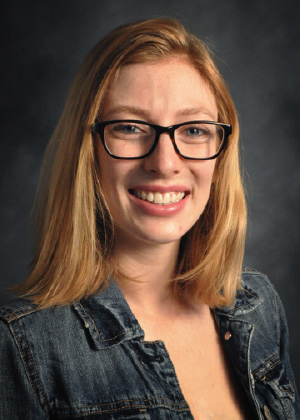
Caroline Andrews
Class of 2022
Caroline Andrews was born in St. Louis, Missouri, raised in Albuquerque, New Mexico, and has lived in several other states and countries. Caroline developed a global awareness at a young age, which continues to influence her goals and work. Caroline has experienced the impact human behavior has on the environment, which fuels her interest in learning about how environmental law can impact children and future generations.
Caroline earned her Bachelors in Special Education from the University of Missouri. Caroline has worked with children of every age, ability level, and from countless cultural backgrounds over the past ten years through both paid and volunteer work. During her time in the classroom, Caroline became frustrated by the lack of resources available to special education students and witnessed the education system failing to meet the individual needs of students with and without disabilities. Caroline experienced the heartbreak of knowing no matter how much she did for a student in the classroom her students’ success was subject to issues outside of her control such as: the student home environment, mental health, socioeconomic status, adverse childhood experiences and countless other barriers to success. Working with students was one of the reasons she chose to attend law school, in hopes of one day working with legislature to change laws in order to improve outcomes for students, enforce laws put in place to protect children and their future success, and to decrease the school to prison pipeline that funnels students of color and students with disabilities at disproportionately high rates.
Caroline’s educational philosophy is that everyone deserves the opportunity to learn in a way that is accessible to them. Caroline recognizes the importance of meeting students’ essential needs in order to improve their educational outcomes. Caroline is interested in the legal aspect of special education and disability rights because although there has been radical change over the last 50 years there is still significant room for improvement. Caroline cherished her time working with students, but was left with more questions than answers, and knew she was not finished with her own education. She chose to attend UNM School of Law to learn more about the legal system and what she could do to prevent it from negatively impacting students and the education system.
Working as a sexual health advocate and peer educator at the University of Missouri showed her the importance of sexual health education and advocacy on both a local and global scale. This experience taught her how influential laws can be when it comes to comprehensive sexual health education and access to LGBTQIA informed healthcare. She learned how critical sexual health education is for children with and without disabilities beginning in infancy and continuing to reinforce positive conversations about sexual health. In a perfect would Caroline would write medically accurate, age appropriate, LGBTQIA inclusive, sexual health education into the common core curriculum at every grade level.
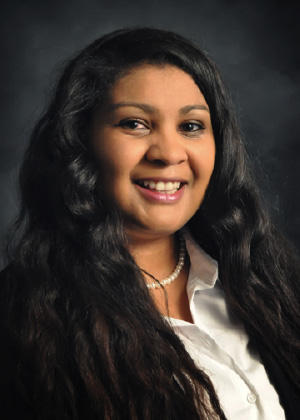
Aanika Mike
Class of 2022
Growing up in Albuquerque New Mexico, Aanika Mike has a passion for service that burns as hot as chile. The daughter of a registered nurse and a firefighter, she always has a zeal for serving her community. Her parents instilled in her the values of service, ethics, and helping others. He molded herself after her two biggest role models who were everyday heroes as far as she was concerned. She wanted to be someone’s hero too.
Aanika attended New Mexico State University and graduated with a bachelor’s degree in Biochemistry and another in Biology with a minor in Chemistry. Originally, Aanika had wanted to be a dentist since about five years of age. She pursued that dream throughout her time in undergrad, all the while realizing he passion for helping others extended to more than just smiles. She became the president of the New Mexico State chapter of the Gamma Beta Phi Honor Society. In this role she organized several service projects and found she had developed a real love for helping out in any way that she could. Most of her weekends were spent cleaning up the streets of Las Cruces, helping out at the local soup kitchen, or getting involved with the various service projects the University sponsored. She decided after graduating that she would take a few years off from school to really figure out what she wanted in life.
During this time, she took a hard look introspectively. It wasn’t that she had given up on her dream of being a dentist, she just realized that dream and the person she had become were no longer the right fit. She felt another calling. The reoccurring question became, “Could I really be a dentist knowing that my patients were having immigration problems, educational inequalities, or losing out on basic human rights?” The answer was no. She couldn’t. She began to brain-storm ideas on how she could use her skills and abilities to make the most change. Becoming a lawyer who advocated for the ones that needed help the most seemed to be the career path that really suited her.
Aanika had all this passion and no direction while she applied for law school. She wanted to gain more experience in her newly chosen field and earned an internship as the New Mexico state legislature with the Legislative Education Study Committee. This was a life changing experience for her. She learned so much during her time with the committee and how laws and policies affected New Mexico’s most vulnerable population; Children. She worked closely with a program evaluator who at the time was evaluating community schools. This type of school system utilizes supports from the community to help the child succeed as a whole. It includes ensuring these children have basic needs like three meals a day, clothes and shoes, are engaged before and after school, as well as helping to keep the parents involved in what is going on in their child’s life. These schools tend to be in underprivileged areas and affect New Mexico’s most at risk youths. While working on this project she was able to see how beneficial these support systems could really be, and how important one positive influence can be in a child’s life. With her law degree, she wants to add another layer of support to help these kids. Whether it is helping to improve their immigration status, addressing racial inequalities, or working to bridge the learning gap. This is the type of law she is passionate about pursuing. She doesn’t yet know where that passion will take her, but she is determined to make a difference.
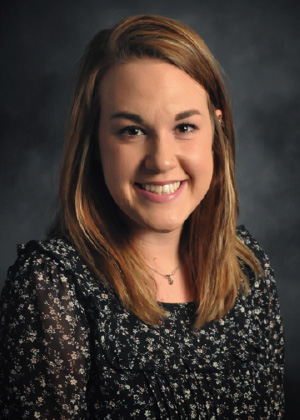
Chelsey Pelzman
Class of 2022
To help offer a voice to those who struggle to be heard is Chelsey Pelzman’s main motivation in pursuing her JD. Growing up in Albuquerque, Chelsey has returned home to dedicate her time and energy to serving New Mexico’s most vulnerable children and families. She attended Texas Tech University and received a bachelor’s degree in Human Development and Family Studies and a minor in Addiction Disorders and Recovery Services.
While in Lubbock, Chelsey spent her time interning with the Lubbock County Juvenile Justice Department and building community with the Addiction and Recovery Department of Texas Tech. Witnessing what humans can do when given the tools to better themselves and build a life of celebration started a fire in Chelsey’s dedication to serving people.
After graduation, Chelsey spent her time working as a Treatment Coordinator at a Treatment Foster Care agency in Albuquerque that served the most vulnerable youth in New Mexico. She witnessed countless acts of trauma, family disunity, and severe injustice in the system that exists when it comes to abuse and neglect in New Mexico. It was at this time that Chelsey decided she wanted to pursue a law degree and become a Guardian Ad Litem as well as focus on policy that centers around helping those that face adversity in New Mexico.
Chelsey then worked at the Sandoval County Detention Center as a Discharge Planner. It was her job to assist inmates in finding rehab centers or safe homes to go to after being released. She then worked at Casa Q, a safe living option for homeless LGBTQ youth (one of the absolute greatest places on earth). It was in these experiences that she witnessed just how much individuals can blossom when given the tools to excel and meet their needs. She then worked at the Child Support Enforcement Division and observed once again the circular pattern of poverty in New Mexico.
Chelsey does not know exactly what her future will look like with a JD, but she knows her passion is fierce and she will do whatever she can to humbly serve and advocate for those who deserve to be heard but are often disregarded.
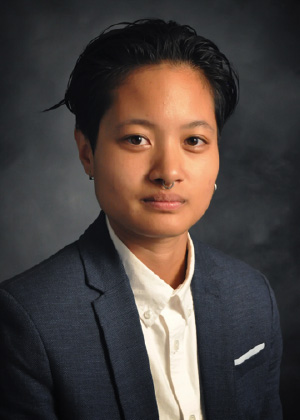
Natalie Saing
Class of 2022
“There was no expectation that I would go to college.” Coming from someone with a BA, an MA, and, soon, a JD, that statement seems inconceivable. Yet, a peek into Natalie “Nat” Saing’s life brings understanding. Nat’s family arrived in the United States as refugees after escaping the Cambodian genocide in the late 1970s. Despite escaping the war, her family struggled to adjust to their new life. As such, her upbringing was a fight. She grew up watching her father work two jobs while single-handedly raising her and her sisters in a cramped apartment with little food on the table. Still, thanks to the sacrifice of her father and the encouragement of her teachers, Nat went on to become the first in her family to graduate from college. She then worked for a law firm in Portland, OR, but that experience extinguished in her any desire to pursue a career in the law.
Years later, that desire was reignited at a conference for organizations serving Asian American Pacific Islander (AAPI) communities – something that Nat had dedicated her life to doing following her time at the law firm. She had mentored low-income (at times, homeless) first-generation Asian American men through the college application process. She organized racial equity trainings for teachers and administrators in Portland on racism and anti-oppression. She helped AAPI immigrant and refugee survivors of violence by organizing culturally-specific and traditional healing spaces. At this conference, Nat saw something she never expected: a panel of AAPI attorneys, all female, who were working with female inmates in deportation proceedings. “It was amazing because they looked like me, and the clients they were serving looked like me.” Nat made a commitment that day to use the law to benefit the community she loves. Today, she is on her way.
2021
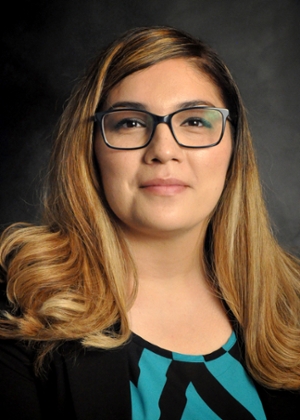
Jessica Arreola
Class of 2021
Jessica Arreola insists that “when you have a passion you have to pursue it no matter how many doors are closed on you.” Truly she talks the talk and walks the walk.
After applying to the UNM School of Law, Jessica was denied. After applying to the UNM School of Law again, Jessica was again denied. Finally, after applying for a third time, Jessica was accepted to the UNM School of Law. Since middle school, Jessica knew that wanted to attend law school. Coming from a family of Mexican immigrants, she is the first in her family to complete her Bachelor’s degree, the first in her family to complete her Master’s degree, and is now the first in her family to pursue a Law degree.
For Jessica, this is not about her. She is doing this for her daughters and for working mothers: “I want to empower women. They do have a path to this. If I can, you can.” With two little girls, she believes that “having babies empowers women.” Her interests in the law are twofold, yet they intersect. On the one hand she is interested in combating oppression when it comes to women, and on the other hand she is interested in serving immigrants. While still finishing her Master’s program, Jessica began working for an immigration law firm. That reaffirmed that she desired to serve immigrant families. For Jessica, she loved helping families because, as opposed to other areas of the law where there is a clear winner and loser, the positive, life-changing possibilities of immigration law create a win-win outcome.
2020
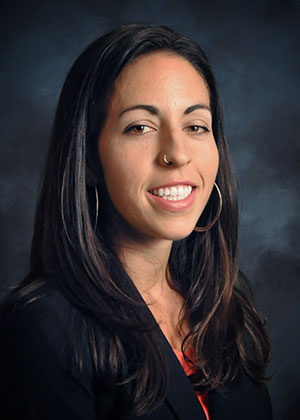
Yarrow Allaire
Class of 2020
"I don’t feel like I have a clear path,” says Yarrow Allaire regarding her legal career as she will soon become the first lawyer in her family. Local to Albuquerque, Yarrow grew up in the South Valley and attended Highland High School in the International District. She became aware early on in her life of the existence of racial and socioeconomic inequities. That awareness laid the foundation for her goal to work to increase equity for vulnerable populations. While at Highland, she participated in “The We the People: The Citizen and the Constitution Program." This experience planted the seeds for her desire to use the law as her means to accomplish her goal.
Yarrow went on to graduate from UNM with her Bachelor’s degree thereafter participated in Teach for America. That took her to McAllen, TX where she taught for two years and then Santa Fe, NM where she taught for one year at Capital High School. Despite enjoying teaching, she felt the system dis-incentivized the profession, and at age 23, with three years of teaching under her belt, she was already burnt out. During year three, she began studying for the LSAT and applied to UNM Law with her heart set on the Child & Family Justice Scholarship due to her commitment to pursuing equity for vulnerable populations. Today, Yarrow is still discovering what she can do with a law degree. As a Peggy Browning Fellow last summer, she was exposed to many possibilities. Regardless of what she ultimately decides on, one thing is clear for Yarrow regarding her career path: she will be doing work she is proud of-work to pursue equity.
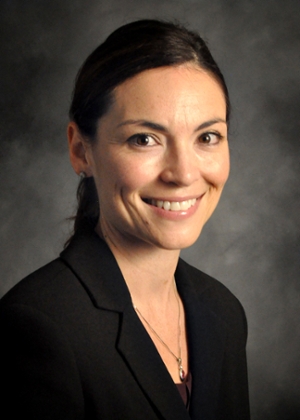
Kateri Garcia West
Class of 2021
"Pure and genuine religion in the sight of God the Father means caring for orphans and widows in their distress and refusing to let the world corrupt you." This Bible verse served as a catalyst for bringing Kateri Garcia West to the UNM School of Law. Kateri was born and raised in the South Valley of Albuquerque, NM. Her passion for science and math coupled with the sacrifices that her parents made to give her the best quality education resulted in her being accepted to and attending the MIT. She was told she would not make it in the field as a Hispanic woman. She proved that idea wrong as she went on work for Medtronic in Minneapolis and later in Albuquerque.
Everything changed for Kateri when she gave birth to her daughter and became a stay at home mom. It was during this period of her life that she began to evaluate what was important in life. That was when the aforementioned Bible verse really came alive to her. This led to her becoming a Court Appointed Special Advocate (CASA) in Farmington, NM. It was while she was representing her client that a seed was planted: "Sitting in children’s court I just felt this calling unlike anything." She attended the Children’s Law Institute where she met Beth Gillia, and after that that she applied to the UNM School of Law. Thanks to her previous career in the medical device industry, she brings skills such as networking, negotiating, budgeting, and working under deadlines to the practice of law. However, her time as a CASA taught her to listen well. "If you can’t hear your client’s needs, you can’t advocate for everything they need." Kateri is here to advocate.
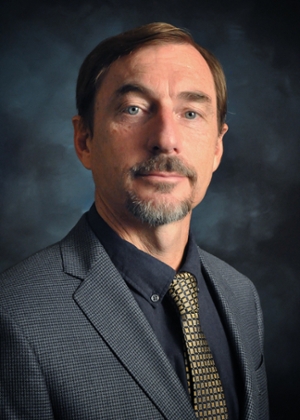
Lionel Betsch
Class of 2020
Lionel Betsch is a man on the move. Following his graduation from Duke University, Lionel began teaching in Thoreau, NM, which became his first bond to New Mexico. He especially enjoyed the challenge of preparing students who would become the first in their families to attend and graduate from college. Having fallen in love, he then moved to Canada to be with the woman who would become his wife. The two of them then moved to Cimarron, NM, where Lionel taught English and coached the boys basketball team that took 3rd in the 1998 State Tournament. The family moved to Albuquerque where he taught first at Rio Rancho High School, then for his final 10 years of teaching, at Highland High School. After retiring from 25 years of teaching in the New Mexico public school system in May 2017, he started law school in August 2017.
Lionel sees his years of teaching as time very well spent. He realized he was not only helping the kids in his classroom but their kids as well. He encouraged his students to “be brave in life,” words that he took to heart as he made the transition from high school teacher to law school student. He will be the first to tell you that he is out of his comfort zone. Nevertheless, law school has been the intellectual and personal challenge he wanted. He is making the most of his time at UNM School of Law and feels privileged to be here: “I love UNM School of Law. I think this is a gem.” His hope is to work in the law for a more just society and to make it easier for people to pursue their educational and career goals.
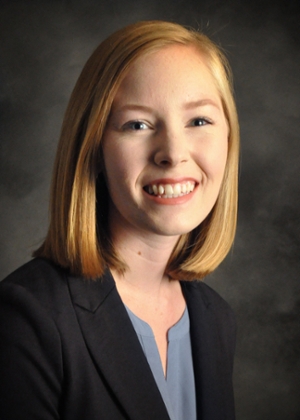
Sarah Hyde
Class of 2021
For a long time, Sarah Hyde thought all lawyers were evil. Fortunately for New Mexico, her perspective changed when she began to understand the power of effective, heart-led advocacy. Born and raised in Albuquerque, Sarah was always familiar with the needs of New Mexico, but it was not until she attended Connecticut College that she became aware of the disparities in the quality of public education that exist from state to state. While At Connecticut College, Sarah focused her studies on Anthropology and Human Development, in which ethnography is a fundamental practice and something she brings to legal practice. “As advocates, we need to ask questions differently,” she says. Furthermore, she believes that some of the strongest skills that advocates can implement are being empathetic and open.
Sarah comes from a family of individuals committed to serving children, so it makes sense that she would feel the same way. She has taught children as a dance instructor, worked in summer camps, and served children with disabilities. She took her skills to New Mexico Voices for Children where she was employed as a Policy Analyst. The W.K. Kellogg Foundation helps fund that organization, so for Sarah, it made sense to apply for the similarly-funded Child & Family Justice Scholarship. Sarah is drawn to public interest as well as policy work. Understanding the power of research thanks to her background in ethnography, she insists that decision-makers must consult with the people impacted, what she calls a “bottom up approach.” She is motivated to create lasting, systemic change.
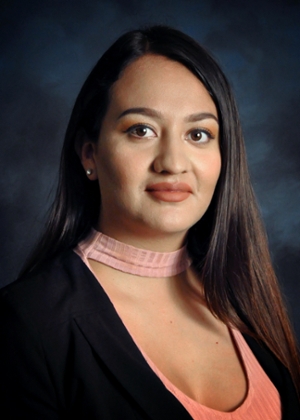
Liz Carrasco Gallardo
Class of 2020
Since she was 10 years old, Liz Carrasco Gallardo planned on becoming a lawyer, specifically so that she could defend her parents. In 1998, her family migrated from Chihuahua. She was five years old at the time and recalls the struggle her family faced in adjusting. Growing up as an undocumented immigrant was a scary experience for her: “I understood my position at a really young age. I knew we had a different life.” This made her especially protective of her parents.
Before law school, Liz worked with the Southwest Organizing Project as a community organizer focusing on socioeconomic issues. It was during this period of her life that she came into a deeper understanding of what it means to be a person of color, an immigrant, and a woman in America. She learned about oppression and xenophobia, which inspired an exploration of trauma. Liz went on to work for the NM Immigrant Law Center and served as a Board of Immigration Appeals Representative.
UNM School of Law feels like home to Liz. Her goal is to become “the lawyer that lawyers through empowerment,” and she views her law degree as a tool to keep fight for equity and justice for people of color. As she sees it, “this is the community’s degree.” She lauds the community for supporting her in this endeavor by providing food, coffee, scholarships, and even her initial seat deposit at UNM Law. At times, she questions why she is in law school, but she is able to ground herself each time with the knowledge that her community is counting on her, and her community believes in her.
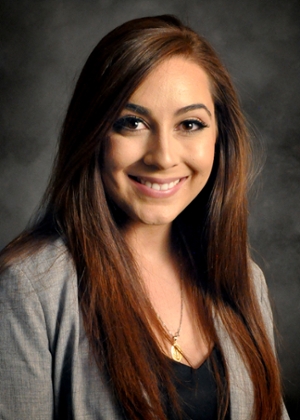
Victoria LeBlanc-Vialpando
Class of 2021
“The laws won’t change until lawyers change.” Armed with this mentality, Victoria LeBlanc-Vialpando is living her dream. She has wanted to attend law school ever since she was in the 3rd grade, and now she is the first member of her family to attend law school. A number of Victoria’s family members and relatives have served New Mexico as educators. Her mother will soon retire after teaching in the Albuquerque Public School system for 25 years. Victoria’s brother is a P.E. teacher. One of her aunts is a teacher, and one of her uncles is a teacher for students with special needs. Victoria has witnessed the truth that serving as an educator in New Mexico is so much deeper than showing up to school to teach. She recalls seeing her mother take hygiene products to school because there were students who did not have any. Victoria knows that the demands on teachers go beyond what is listed in their job description.
After graduating from UNM with her Bachelor’s degree in May 2016, Victoria interned with the Albuquerque office for U.S. Senator Tom Udall. She worked in the Student Development Institute with the goal of attracting and transporting students in rural communities to seminars at UNM as well as increasing economic development in rural communities. From there, she transitioned to working for the Bregman Law Firm, P.C. where she still works. Victoria has come to understand that as a lawyer, “you represent people who can’t represent themselves,” and it is that understanding coupled with her background that have produced an interest in education law and children’s law. “Teachers and their students need a voice for them outside the classroom.”
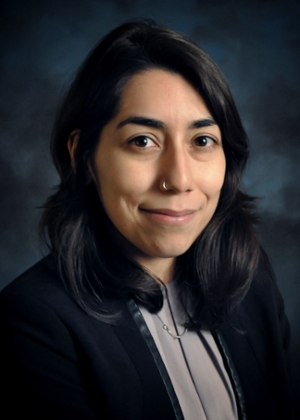
Evelyn Ibarra-Ortiz
Class of 2020
“I’m here, and I’m with you.” These are the words that encapsulate Evelyn Ibarra-Ortiz’s trauma-informed, client-centered approach to legal advocacy. With criminology as her undergraduate major, Evelyn initially planned to pursue a career with the Federal Bureau of Investigation. However, an opportunity to work for Enlace Comunitario, a social justice organization led by Latina immigrants with the mission to eliminate domestic violence in the Latino immigrant community and promote healthy families in Central New Mexico, drastically changed Evelyn’s career aspirations. While working for Enlace, she became a Crisis Intervention Specialist putting her was on the front lines as she took calls from survivors of domestic abuse. The most rewarding part of working for Enlace was seeing the women and children she helped months down the road because they became different people.
Evelyn now hopes to work for the Law Offices of the Public Defender having interned there this past summer in the Serious Violent Offenses Division. Criminal defense was something that Evelyn’s former colleagues at Enlace could not understand, but she pointed out the common ground of working as a Criminal Defense Attorney and a Crisis Intervention Specialist: meeting someone during one of the worst times in their life and being there to help them. Evelyn acknowledges the fact that criminal defendants get a bad reputation, but her heart is to address the trauma that brought them to that point and mitigate its effect on the next generation.
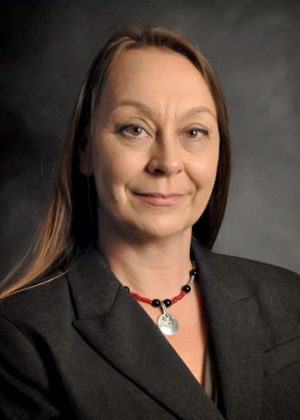
Erin Marshall
Class of 2021
As an anthropologist, Erin Marshall has worked in public health in New Mexico for over 17 years. She has helped establish three nonprofit organizations in the state as part of her concerted effort to secure good health for all New Mexicans. Erin is dedicated to her state. In fact, she has a strong inheritance when it comes to public service as her great, great grandfather, Ernest Bicknell served as the First National Director of the American Red Cross. Erin started off her career in public health with a focus on end of life care, and from there, she began working her way backwards with respect to age range. “We’re facing our first generation that’s not going to outlive its parents,” she says, and she is committed to changing that.
In turning her attention to the youngest in the state, Erin helped expand the Breastfeeding Taskforce across New Mexico. She then discovered that babies were dying in the newborn intensive care unit (NICU) because they did not have access to breast milk, which led her to fight for legislation in 2017 that would have created an insurance mandate to provide milk in the NICU. The insurance companies have pledged to update their policies and the result was the creation of the Human Milk Repository of New Mexico to ensure that it happens.
With her experience in the world of nonprofits and public service, Erin maintains a great relationship with the W. K. Kellogg Foundation, the sponsor of the Child & Family Justice Scholarship. The Foundation awarded a grant to one of her nonprofits in the past and is a partner in addressing the needs of children in New Mexico.
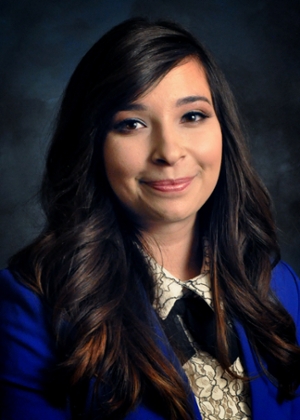
Ariana Montez
Class of 2020
It is Ariana Montez’s goal in life to eradicate child sex trafficking in New Mexico. In 2016, after discovering that New Mexico has one of the worst human trafficking problems in the entire country, Ariana began working for a nonprofit service provider organization called The Life Link. In collaboration with an anti-human trafficking initiative affiliated with the NM Attorney General’s Office and Albuquerque Mayor Richard Berry, she was primarily involved with the Domestic Minors Sex Trafficking Task Force. Her responsibilities consisted of coordinating outreach and creating awareness of the issue. She organized a freedom walk in Santa Fe, NM that ended on the steps of the New Mexico State Capitol to educate the public on the issue in New Mexico. Ariana went on to obtain funding for another awareness campaign in Santa Fe. Additionally, her outreach and awareness campaign in Albuquerque has been successful in attracting callers to the 505-GET-FREE hotline.
All of this led Ariana to apply to and attend UNM School of Law where she has continued her activism, currently serving as President of the Women’s Law Caucus and President of the American Constitution Society for Law and Policy. She clerked for the Southwest Women’s Law Center and is currently clerking for the Attorney General’s Office. As a future attorney, she will advocate for laws that provide harsher punishments to traffickers. Ultimately, she intends to serve as counsel on behalf of children who have been the victims of child sex trafficking and work on providing trauma after-care for children, teens, and families affected by human trafficking.
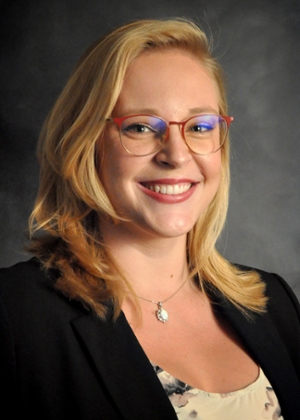
Emily Nitschke
Class of 2021
On December 7, 2018, Emily Nitschke became a U.S. citizen. Originally from Australia, she and her family lived in Western Samoa before moving to Santa Fe, NM when she was nine years old as her father took a position at Los Alamos National Laboratory. She immediately noted the interaction of cultures and fell in love with New Mexico.
Emily went on to UNM studying Political Science with a focus on International Studies. Her goal was to enter the Peace Corps until she began working with the Refugee Well-being Project with UNM. As part of the program, she was paired with refugee families with responsibility of advocating for and transferring advocacy skills to the families to navigate life in a new country. At the time, Emily knew that New Mexico was a diverse state, but she had no idea of the degree. It was eye-opening to see refugees arrive in the U.S. and then get settled into poverty. Emily recalls one man saying that living in poverty in the U.S. is more difficult than living in a refugee camp. She began to be able to empathize with the people she met as she recalled that for her and her family, “the experience of moving to this country was hard enough even though we had every advantage in the world.”
Emily intends to focus on immigration law, especially family separation. The Child & Family Justice Scholarship is keeping her on her goal and reminding her that she came to law school to obtain an advanced skill to better advocate for immigrants.
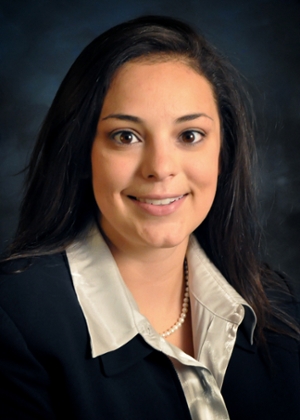
Meagan Muñoz
Class of 2020
“I made it here, and I need to extend a hand backwards.” This is Meagan Muñoz's mindset as she reflects on her journey thus far that has taken her from small-town Hobbs, NM to her second year at the UNM School of Law.
Meagan has a heart for children. In undergrad, she studied Psychology with an emphasis in child development. She spent her summers in San Diego, CA working with the YMCA. After graduating, she worked for a nonprofit called Playworks where she taught conflict resolution on the playgrounds of urban schools with low-income students. She then moved back to Hobbs, NM where she served four years as teacher, one in fourth-grade and three as a middle school coach. During those years, she witnessed the struggles students face in New Mexico. For instance, Meagan learned to keep a drawer full of food because she knew there were students that needed that support in order to learn in class.
Ultimately, there came a point for Meagan when she felt there was more work to do, so she became a CASA Volunteer. That is what led her to pursue her JD at the UNM School of Law. She wants to ensure students in New Mexico are well-supported and receive a quality education. For that reason, child advocacy and education policy are strong interests that influence Meagan’s study of the law. Eventually, she would like to serve as a Guardian ad Litem, a way to honor her time as a CASA Volunteer, and help influence the policy that will guide New Mexico toward a better path in education. Meagan has served on the board for the Southwest Women’s Law Center for over a year and is the student liaison for the Children’s Bar Section of the New Mexico State Bar. She still maintains contact with her former students, who remain the driving force behind her determination.
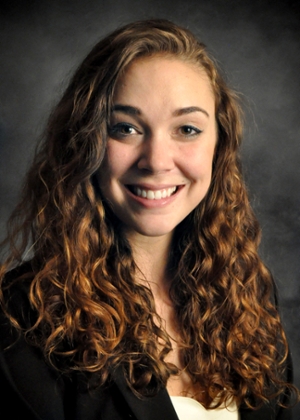
Tara Roepke
Class of 2021
From Guatemala City, Guatemala to Albuquerque, NM Tara Roepke has taught in classrooms around the world. “Education is where my heart is,” she says, and it is her love for education that fueled her journey to law school. She earned her Bachelor’s degree in Elementary Education and her Master’s degree in Teacher Leadership.
Tara filled up an entire passport during her time away from New Mexico, giving her exposure to a variety of cultures and their education systems. While teaching in Guatemala, Tara had numerous supports and resources. She also shared responsibility of her class with other teachers. In Albuquerque, she worked 60 hours a week and still was unable to finish all of her tasks or give students what they truly needed. This was a turning point for Tara. She applied to UNM School of Law with the goal of impacting education. Tara wants children to have the opportunity to receive a quality education and support parents and teachers in the process. Having taught at a Title 1 school in Albuquerque, Tara says, “Every single social justice issue you can think of arises in the classroom,” and given her experiences, she has seen the inequity that exists.
Nevertheless, Tara has hope and positive feelings toward teaching. Her greatest struggle in law school is that she misses working with kids. She points out that there are “not a lot of jobs with 25 hugs a day.” In the future, Tara would like to open her own private nonprofit school to serve low socioeconomic and diverse populations.
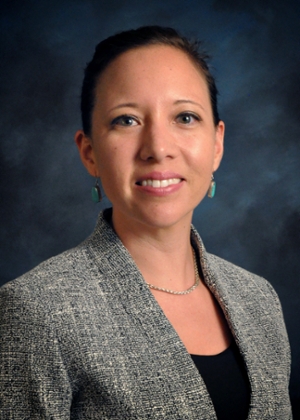
Sun Vega
Class of 2020
“If I don’t try, how will I ever know?” This was the question that led Sun Vega to pursue her legal education at the UNM School of Law after working for over a decade as a health care administrator and management consultant.
Born in Albuquerque, NM, Sun and her family later moved to Portales, NM where she graduated from high school. She went on to pursue her Bachelor’s and Master’s degrees in Business Administration at Eastern New Mexico University. When she graduated, the housing market hit the bubble, and with her husband pursuing a career in the mental health field at the time, Sun “fell into” the behavioral health field. She worked as a Business Manager for a small physician group practice that primarily served children and families with behavioral health needs. Over time, she became the Chief Operations Officer for one of the largest nonprofit children’s behavioral health organizations in the state. However, when 15 Medicaid behavioral health providers who comprised of nearly 90% state’s service capacity were accused of “credible allegations of fraud,” the majority of these organizations were forced to close their doors in 2013. As a result, she began consulting nationally, though it was not as fulfilling as working in her own community. The NM Attorney General has since cleared all the organizations of any wrongdoing.
When Sun decided to pursue her JD at the UNM School of Law, she was immediately drawn to the Child & Family Justice Scholarship because of the intersections between community behavioral health and the needs of New Mexico’s most vulnerable children and families. The fact that the UNM School of Law serves the people she cares about is something that she deeply appreciates. She aims to contribute to that effort.
Due to Sun’s exposure to a broad array of health systems and her work with a variety of nonprofit organizations, she saw a great need for assistance with navigating this complex landscape. For Sun, it begins with endeavoring to secure the fundamental human right to health care and advocating for the needs of New Mexico’s children and families. From there, Sun aims to use her background, skills, and education to help New Mexicans get to a point where we can rebuild and expand access to health and human services opportunities for the betterment of our future.
Clinic
In 2017 the Law School created the Child & Family Justice Clinic, adding it to the other clinical legal education sections within UNM Law’s pioneering and mandatory capstone clinical experience.
Law students engaged in the Child & Family Justice Clinic have helped numerous grandparents gain custody of grandchildren exposed to opioids in utero and born addicted, whose parents are unable to care for them—one of the tragic consequences of the opioid epidemic in New Mexico. They have also helped parents plan for their children’s safety and care in the event of an immigration emergency that separates children from their parents. In addition, as part of a multi-disciplinary treatment team, they have helped reduce the recidivism and improved the welfare of youth involved in the juvenile justice system by addressing the unmet legal needs of the youth and their families.
Led by UNM Law professors, practicing volunteer attorneys, and University and community partners, the Child & Family Justice Clinic is also working on this significant project:
Immigration Action Child Safety Project
This Project addresses the social and racial injustice of the hostile immigrant climate on our undocumented and mixed status families. Our Immigration Action Child Safety Plan in both English and Spanish contains protective legal measures for parents, including a parent’s power of attorney, advice, and information to plan for the children’s safety and care if the parents are detained or deported.
Learn more about the Child and Family Justice Clinic’s mission and service.
Learn more about Experiential Learning and UNM Law’s nationally top-rated Clinical Program.
Medical-Legal Alliance
The Medical-Legal Alliance (MLA) is a program of the UNM School of Law’s Clinical Law Program. Since its inception in 1994, the MLA is continually evolving to meet the health harming legal needs of low income, marginalized, and otherwise vulnerable children, youth, and families receiving medical services at two UNM – Health Sciences Center (HSC) community-based medical clinics in Albuquerque. By integrating legal assistance into the medical setting, the MLA is a care model that aims to improve the health and well-being of individuals, children, and families through interdisciplinary intervention. It is a long-standing partnership focusing on legal issues adversely affecting the health of patients living in some of the most impoverished neighborhoods in New Mexico.
The MLA addresses the interrelatedness of the physical health, legal health, and justice of low-income families. The legal interventions the MLA provides address the Social Determinants of Health (SDOH). SDOH are the conditions in which people are born, grow, live, work, and age and include such factors as socioeconomic status, education, neighborhood and physical environment, employment, social support networks, as well as access to health care. By addressing the SDOH, the MLA aims to improve the health and well-being of the families and children receiving legal services. The goals of the MLA are to:
- Provide free legal assistance to referred patients from two UNM-HSC clinics located in low-income neighborhoods;
- Train doctors, nurses, medical students, residents, social workers, behavioral health counselors, case-managers, and community support workers to identify potential legal issues that may be affecting their patient’s health or well-being;
- Address civil legal issues such as family, housing and economic stability, domestic violence, wage theft, and immigration status adjustments due to being a victim of crime;
- Raise the law student’s awareness of the need for holistic, interdisciplinary interventions to improve the health and well-being of those facing multiple disadvantages;
- Create experiential learning opportunities for law students within a medical clinic setting, as well as the opportunity to gain knowledge from medical students about the health and mental health issues impacting their legal cases.
Through the MLA, third year law students gain practical lawyering skills, insight into other disciplines problem solving and practice, and vital empathy. Because of the law student’s engagement, the health care providers, social workers, or community support workers are better able to identify legal issues and to refer patients for MLA legal help. Clinical law students do intake interviews onsite at the medical clinics—engaging the patients in a safe and trusted environment. If the case is appropriate for representation by clinical law students, the assistance offered ranges from brief service to representation in a court or administrative proceeding.
The National Center for Medical-Legal Partnership, located at the George Washington University’s Milken Institute School of Public Health in Washington DC, recognizes the UNM School of Law’s MLA as a partner program. The Law School’s MLA is one of the first medical-legal partnerships established in the United States and one of the few programs located on a university campus that has both a law and medical school. This creates an opportunity for interdisciplinary collaboration with not only the medical school, but also the college of nursing, pharmacy school, population health programs, and the New Mexico State University’s School of Social Work.
To learn more about the program, please contact:
Michael J. Ruble, JD
Program Planning Manager
505-277-0903
ruble@law.unm.edu
“I know that I will be a different practitioner in the future because of my work in the Clinic and with the ADOBE team. I know this because I have seen first-hand what it means to treat a client as a full person rather than a legal issue to be solved.”
Erin Phillips, Class of 2019
“I will go forward as a practicing attorney, aware of how the clients lives and needs impact their involvement with me as their attorney. Having a holistic approach to my future clients and their needs, allows me to be the best advocate for my clients that I can be.”
Jennifyr Vickery, Class of 2019
“It’s amazing for a family who feels like they’ve been on the short end of the stick in the legal system to suddenly be able to have their argument be made and heard. Going to the utility company or income support division with a law student taking notes makes things happen much faster than if you show up by yourself.”
Dr. Andrew Hsi, Founder, Medical-Legal Alliance
Coursework
It is the intent of the UNM School of Law to see the CFJI woven into the fabric of its identity as a law school. In order to develop students who would be prepared to serve vulnerable communities following graduation, UNM Law began developing courses that would support that outcome.
One new addition to the curriculum was “Social Change Advocacy.” This seminar discussed the scope and definition of public interest lawyering, examined the settings in which public interest lawyering occurs, as well as the advantages, limitations, and legal skills required for different legal strategies including litigation, lobbying, public education, public relations/media strategies, community organizing and community economic development. The course was designed to have students (both JD students and students in the Master of Studies in Law program) develop and vet fellowship and grant proposals that they will submit to potential funders for post-graduate opportunities.

Social Justice Lunchbox
The Social Justice Lunchbox Series focuses on topics such as issues faced by vulnerable children and families, social justice, and racial equity.
The Series also discusses skills and approaches necessary for effective social justice lawyering that are not otherwise covered in traditional law school classes (e.g., communication, cultural literacy, trauma, community partnerships, and leadership).
The goal is to feature a diverse array of speakers, both attorneys and other professionals, who (1) will serve as models of success for the Child & Family Justice Advocates, and (2) may serve as future host organizations for the Child & Family Justice Fellows. Although attendance at each Social Justice Lunchbox is required for the Child & Family Justice Advocates, they are open to all UNM Law students, faculty, and staff, as well as members of the public and the greater UNM community.
For more information, contact Senior Attorney Cristen Conley.